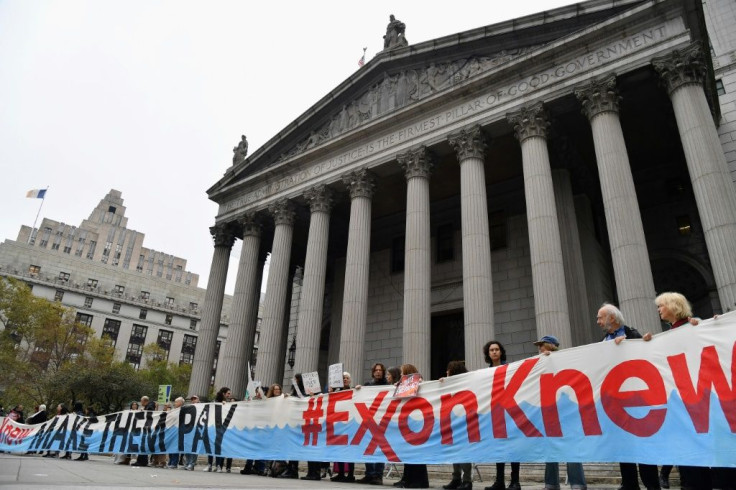Oil Majors Not In Sync With Global Climate Goals: Report
Oil and gas giants are far from aligning with the global climate change goals they purport to uphold, and only a government-managed decline of the sector can prevent climate catastrophe, according to an analysis released Wednesday.
"We have seen a wave of announcements from oil companies over the last nine months claiming to be part of the solution on climate, but none of their plans measure up to what is needed," co-author Kelly Trout, a senior research analyst at Oil Change, told AFP.
Oil majors have touted measures such as reducing the carbon intensity of their products, transitioning into renewable energy, storing "captured" CO2 underground, and offsetting emissions through reforestation.
The report stacked up the climate commitments of eight oil and gas companies against the Paris climate goal of curbing global warming at 1.5 degrees Celsius above pre-industrial levels.
Under the 2015 treaty, nations are enjoined to cap the planet's average rise in temperature at "well below" 2C, and 1.5C if feasible.

A subsequent report from the UN's IPCC climate science panel showed 1.5C to be the safer limit by far, and laid out scenarios for achieving that goal by slashing or sequestering greenhouse gas emissions.
The IPCC has calculated that the additional release of more than 500 billion tonnes of CO2 into the atmosphere would push temperatures above the 1.5C threshold.
If global CO2 emissions continue at the recent level of about 40 billion tonnes a year, this "carbon budget" would be used up in less than a decade and a half.
BP, Chevron, Eni, Equinor, ExxonMobil, Repsol, Shell and Total, all based in Europe or the United States, have to varying degrees laid out strategies they say are compatible with the Paris targets.

Using the 1.5C threshold as a benchmark, Trout and colleagues graded 10 components of each company's climate plan along the spectrum of "fully aligned" to "grossly insufficient".
Pledges to stop approving new extraction projects, for example, were judged "grossly inefficient" in all eight oil giants.
The same failing mark was given across the board for committing to a date to end oil and gas extraction; being "honest" about the high carbon content of gas; and -- with the exception of BP -- promising to stop exploration.
Even if global use of coal -- which powers 40 percent of electricity generation worldwide -- were phased out overnight, developed gas and oil reserves would still push the world beyond the 1.5C threshold, earlier research has shown.
"The only reason that big oil companies have started to change their tune on climate is that they saw they were at risk of losing their social license as millions of people join climate strikes around the world," said Trout.
Investors and public finance institutions have likewise started to pull back from fossil fuels, though coal has by far taken the biggest hit.
The report, entitled "Big Oil: Reality Check", also slams the publically traded firms for relying on hard-to-measure reforestation and embryonic CO2 storage schemes to offset emissions from their products.
In the end, only governments can ensure the managed decline of fossil fuel-based energy, the report concluded.
"We cannot depend on the same companies that got us into this crisis to get us out of it -- we seen a need for governments to step in," Trout said.
"An arsonist pledging to light a few less fires is still an arsonist."
© Copyright AFP 2024. All rights reserved.





















